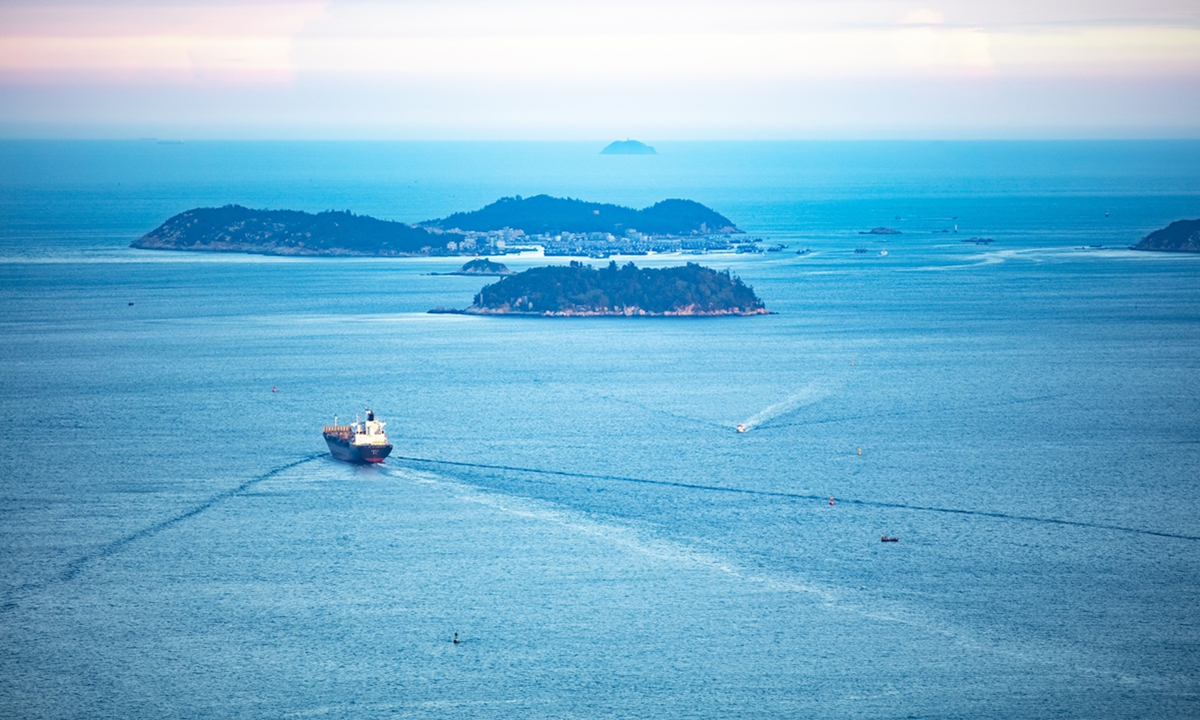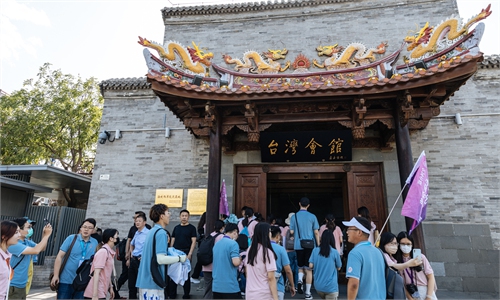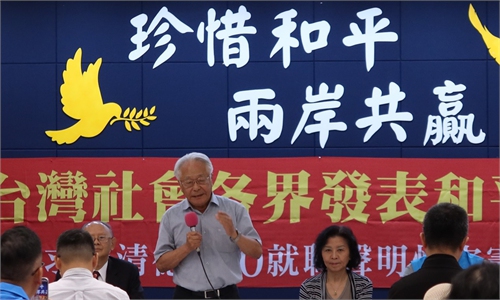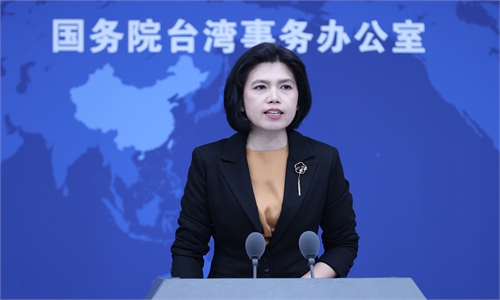DPP authorities urged to lift ban on mainland-bound group travel as new motion passed in Taiwan

A view of the Taiwan Straits is seen from Xiamen port, in East China's Fujian Province. Photo: IC
The "legislative body" on the island of Taiwan has passed a motion asking the ruling Democratic Progress Party (DPP) authorities to remove restrictions on group tours to the Chinese mainland, with analysts viewing the case as strong dissatisfaction from the majority of Taiwan people toward the DPP for obstructing cross-Straits exchanges, and sacrificing the interests of the people out of secessionism and a confrontational mentality.
According to Taiwan-based media, the Chinese Kuomintang Party (KMT) proposed a motion on Tuesday to ask the DPP authorities to remove restrictions on group tours to the mainland. The proposal was also backed by the Taiwan People's Party (TPP), another major opposition party. The DPP authorities banned Taiwan tour groups from the visiting mainland from June 1.
The motion, passed with 59 votes in favor and 48 votes against, also called on the DPP authorities to prioritize allowing mainland tourists to visit the islands of Kinmen, Matsu and Penghu via the current ferry links, which would be "very beneficial" economically to the islands that rely heavily on tourism.
In response, Taiwan's "mainland affairs council" said in a statement that it "respects" the motion's stance and will continue to review the policy based on cross-Straits interactions. It also claimed that "obstacles to resuming cross-Straits tourism exchanges lie on the mainland."
Although authorities in the mainland announced on April 28 that it will resume Taiwan-bound travel for residents of Fujian Province, on June 27, Taiwan's "mainland affairs council" raised an "orange" travel alert for the mainland, the second-highest warning level which advises Taiwan people to avoid non-essential travel to the mainland.
The motion came following a four-day cross-Straits travel expo held in Taipei from July 12 to 15, during which Taiwan people showed "great enthusiasm for mainland tourism," according to Taiwan media. The mainland sent 155 participants, including officials and tourism operators, marking the largest visit by mainland industry professionals to Taiwan since the COVID-19 pandemic.
Tourism operators told Taiwan media that the mainland market has always played a very crucial role for Taiwan's tourism industry and they hope cross-Straits relations can move forward in the right direction. There are 4,000 travel agencies in Taiwan, about 90 percent of which have mainland business.
Wang Jianmin, a senior cross-Straits expert at Minnan Normal University in Fujian, told the Global Times on Wednesday that there is a game between two forces in the island of Taiwan on whether to resume cross-Straits tourism. On one side are the secessionist DPP authorities, which obstruct cross-Straits people-to-people tourism activities, while on the other are the opposition parties and industry operators, who still remain positive and open to exchanges.
The passing of the motion showcased the great dissatisfaction of the Taiwan people with the DPP's obstruction of cross-Straits exchanges and sacrificing of industry operators' interests, Wang said, noting that the motion shows people's desire to ease cross-Straits tensions.
Although the motion expresses the attitudes of the opposition parties and the public, it would still be difficult to make real changes in the DPP's policy of obstructing cross-Strait exchanges, said Wang, adding "Like the Taiwan media said, the motion is not binding."
And in terms of the DPP, it is willing to advance its secessionist goal at the expense of harming the interests of Taiwan and the common interests of people across the Taiwan Straits, Wang said.
Experts are not optimistic about the full resumption of cross-Straits tourism in the short term, however, under the pressure of Taiwan people, the possibility of resuming two-way tourism in a smaller range, such as for Kinmen and Matsu, still exists.
With the DPP sticking to its stubborn secessionist stance and the US intervening in the Taiwan question, it will be difficult for the two sides of Straits to truly reduce tensions in the short term, Wang said. "The current cross-Straits tourism situation has become part of a political game, which will require more patience and efforts to resume and promote exchanges," he said.




